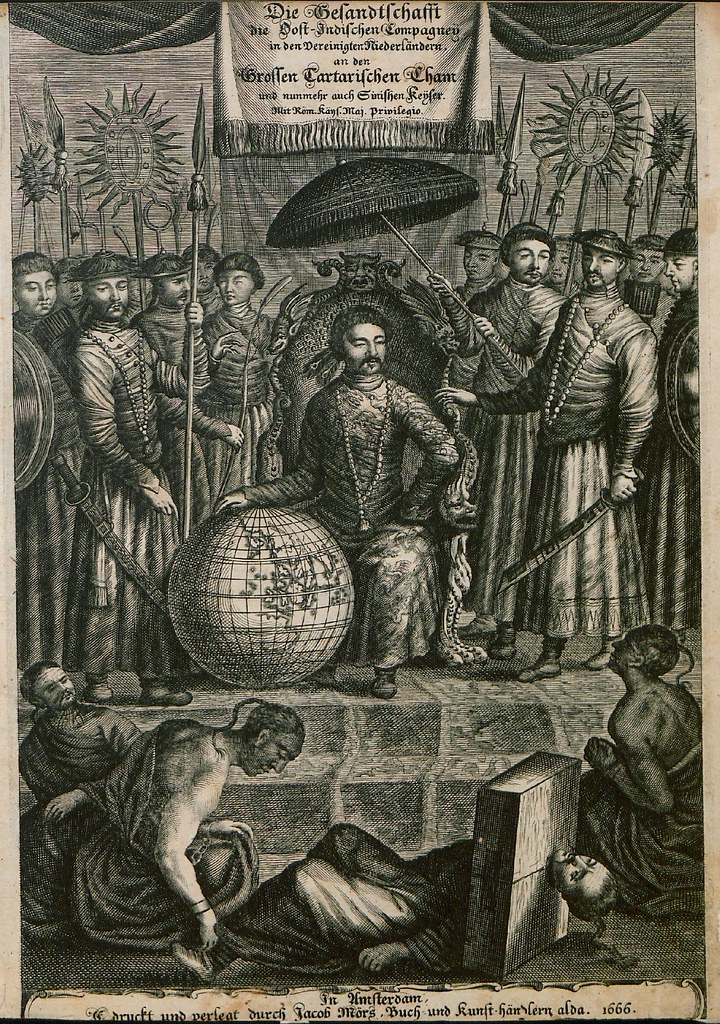
The German 1666 title page (after the Dutch original) was rendered into English a couple of years later as:
'An embassy from the East-India Company of the United Provinces, to the Grand Tartar Cham, emperor of China: delivered by their excellencies Peter de Goyer and Jacob de Keyzer, at his imperial city of Peking wherein the cities, towns, villages, ports, rivers, &c. in their passages from Canton to Peking are ingeniously described by John Nieuhoff; also an epistle of Father John Adams, their antagonist, concerning the whole negotiation; with an appendix of several remarks taken out of Father Athanasius Kircher; Englished and set forth with their several sculptures by John Ogilby'
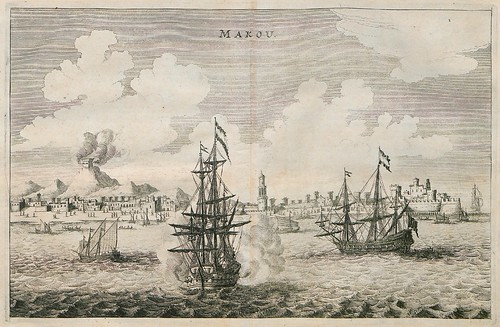
Macau
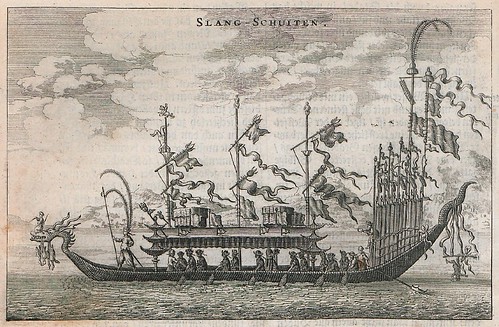
Ceremonial barge or long-boat
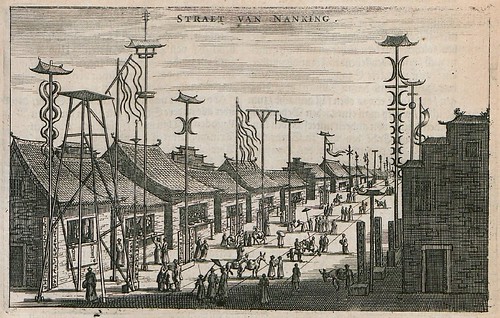
Street scene in Nanking
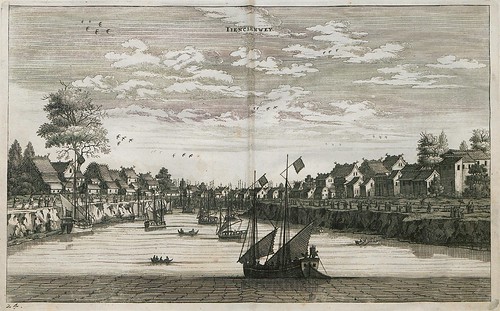
Tianjin* (city in N China)
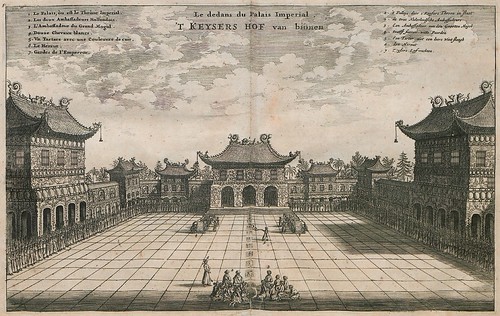

A pair of views of the Imperial Palace in Peking with bilingual legends
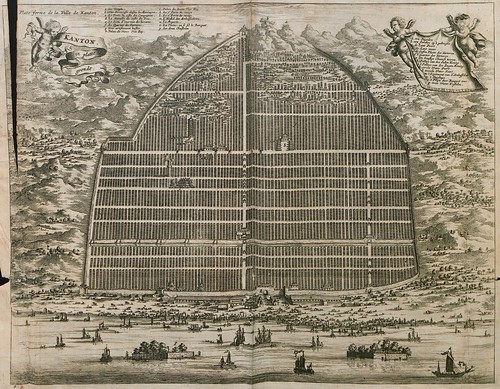
Canton town and harbour, including the palace of the Viceroy
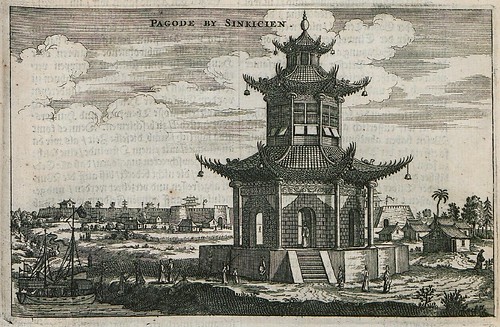
Pagoda near the Chinese city of Sinkicien
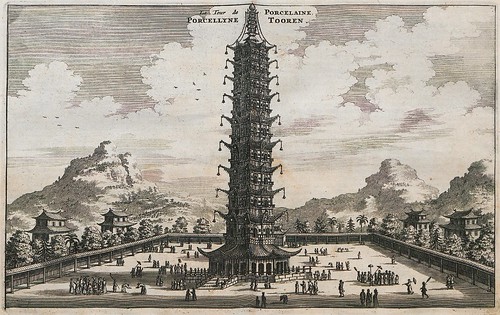
The Porcelain Tower or Pagoda of Nanjing, otherwise known as the Temple of Gratitude
"It was a pagoda constructed in the 15th century during the Ming Dynasty, but was mostly destroyed in the 19th century during the course of the Taiping Rebellion.
In 2010 Wang Jianlin, a Chinese businessman, donated one billion yuan (US$156.3 million) to the city of Nanjing for its reconstruction of the pagoda. This is reported to be the largest single personal donation ever made in China."
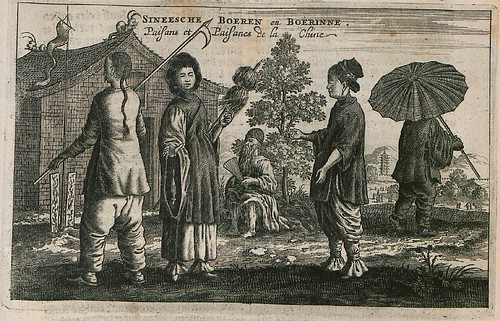
Chinese peasants near a traditional farmhouse
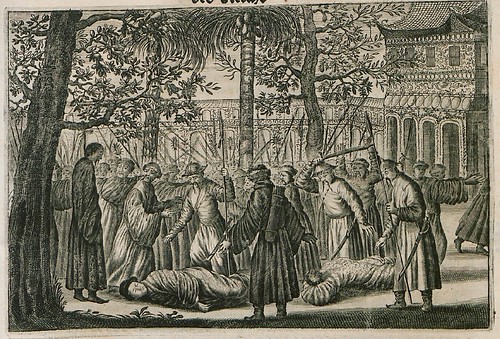
Untitled
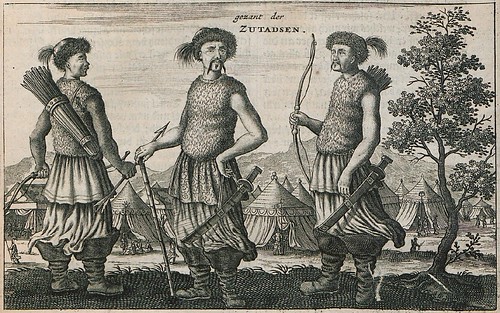
Mongol ambassadors stand in front of an encampment [alternative]
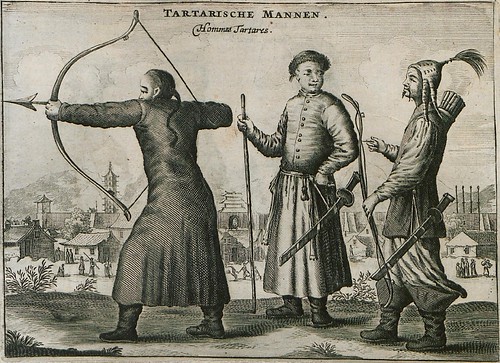
Hunter or warrior men from Tartary*, Mongolia
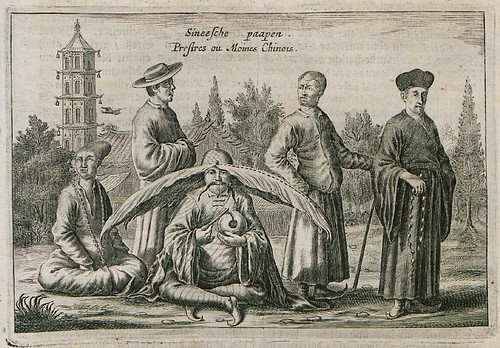
Chinese priests and monks
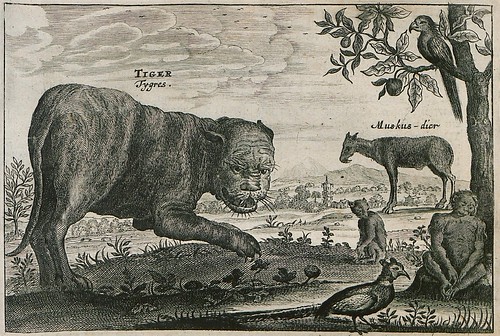
Tiger, musk deer and other animals and birds
The first edition of this important book by Johan Nieuhof was published in Dutch in [?]1662 and translated into the major European languages within a couple of years. It was one of the few non-Jesuit sources on China from this period and was famous for its wealth of engravings.
The book was translated into English by the great Scottish mapmaker and publisher, John Ogilby, in 1669, and included excerpts from Athanasius Kircher's 'China Illustrata' (1667) and illustrations (at least some) by Wenceslaus Hollar, based on the originals from the Dutch text.
Nieuhof (1618-1672) [previously] was a Dutch diplomat and traveller who wrote about his journeys to Brazil, China and India. The most famous of these was a trip of 2,400 km from Canton to Peking in 1655-1657, which enabled him to become an authoritative Western writer on China. After an adventurous career in the service of the Dutch East India Company (or VOC) in Sri Lankan and Indian posts, Nieuhof lived in Batavia until 1670. In 1672 he disappeared without trace in Madagascar while travelling in a sloop from which he had landed to seek drinking water.
- The images above were sourced from a newly digitised book posted by the University of Heidelberg, 'Die Gesantschaft der Ost-Indischen Geselschaft in den Vereinigten Niederländern an den Tartarischen Cham und nunmehr auch Sinischen Keiser' (1666; published by Jacob van Moeurs) :: {click anything below 'Inhalt' and then 'Vorschau' for thumbs}
- The image below, engraved by Wenceslaus Hollar, comes from the English edition of Nieuhof's book, online at the Digital Library for the Decorative Arts and Material Culture at the University of Wisconsin (arguably, these are better quality engravings and also better quality digital files - note the gallery view link in the sidebar).
- [W]: Johan Nieuhof, John Ogilby.
- Previously: Connecting with China [& China]; Voyage to Exotica.
- Follow along on Twitter, if you are so inclined.
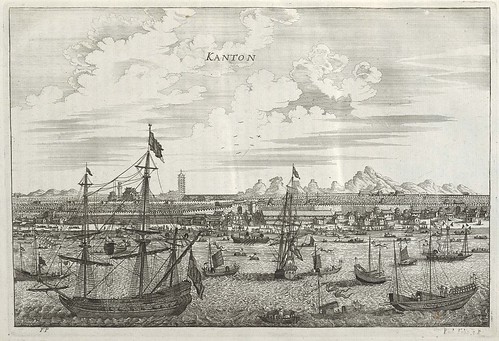
Canton
No comments:
Post a Comment
Comments are all moderated so don't waste your time spamming: they will never show up.
If you include ANY links that aren't pertinent to the blog post or discussion they will be deleted and a rash will break out in your underwear.
Also: please play the ball and not the person.
Note: only a member of this blog may post a comment.